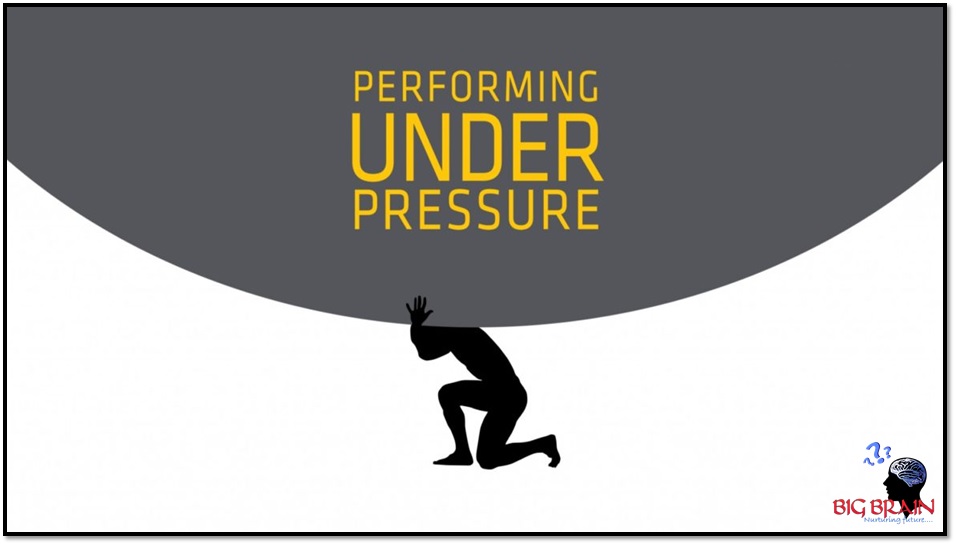The ability to work well under pressure is a critical skill in both professional and personal contexts. In today’s fast-paced and demanding world, challenges, deadlines, and unexpected problems are inevitable. Excelling under pressure demonstrates resilience, adaptability, and focus, which are highly valued traits across industries.
What Does It Mean to Work Well Under Pressure?
Working well under pressure involves maintaining composure, staying productive, and delivering high-quality results despite stressful circumstances. It requires the ability to manage time effectively, prioritize tasks, and maintain a positive and solution-oriented mindset even when challenges escalate.
Key Skills and Strategies for Working Under Pressure
1. Emotional Intelligence (EQ)
- Emotional intelligence is the ability to recognize, understand, and manage your emotions while empathizing with others.
- Under pressure, maintaining emotional control prevents stress from clouding your judgment.
- High EQ allows you to remain calm, avoid panic, and reassure teammates or stakeholders.
2. Prioritization and Time Management
- When pressure mounts, prioritizing tasks becomes essential to ensure the most critical objectives are addressed first.
- Use techniques like the Eisenhower Matrix to classify tasks based on urgency and importance.
- Break larger tasks into smaller, manageable steps to avoid feeling overwhelmed.
3. Problem-Solving Skills
- Pressure often stems from unexpected challenges or crises. Effective problem-solving helps identify root causes and develop actionable solutions.
- Staying analytical and logical under stress ensures that decisions are thoughtful and not reactionary.
4. Focus and Concentration
- Maintaining focus under pressure means avoiding distractions and giving undivided attention to high-priority tasks.
- Techniques like Pomodoro, mindfulness practices, and deep work sessions can enhance your ability to concentrate in stressful situations.
5. Adaptability
- Pressure situations often involve rapidly changing circumstances. Flexibility allows you to adjust your approach and stay effective even when plans change.
- Embracing a mindset of adaptability helps you see challenges as opportunities rather than obstacles.
6. Communication Skills
- Clear and concise communication is crucial under pressure to coordinate with team members, convey expectations, and provide updates.
- Transparency in expressing concerns or needs ensures collaboration and prevents misunderstandings during high-stress periods.
Steps to Improve Your Ability to Work Under Pressure
1. Develop Resilience
- Resilience is the capacity to bounce back from adversity. Building resilience involves maintaining a growth mindset, learning from setbacks, and staying optimistic.
- Practice stress-management techniques like deep breathing, exercise, or meditation to improve your ability to recover from high-pressure situations.
2. Practice Preparation
- Preparation reduces uncertainty, which is a common source of pressure. Anticipate potential challenges and create contingency plans.
- Regularly review tasks, timelines, and responsibilities to avoid last-minute surprises.
3. Stay Organized
- A well-organized workspace and schedule can reduce the chaos associated with high-pressure scenarios.
- Use tools like task management software, calendars, and checklists to stay on top of deadlines and responsibilities.
4. Stay Positive
- Maintaining a positive attitude under pressure can influence your performance and those around you.
- Remind yourself of past successes where you handled pressure well to build confidence in your abilities.
5. Learn to Say No
- Recognizing your limits is essential in preventing burnout. Politely declining additional tasks when you’re already overwhelmed can help you focus on completing current priorities effectively.
Benefits of Working Well Under Pressure
- Enhanced Productivity: Pressure can serve as a motivator, helping you accomplish more in less time.
- Improved Decision-Making: Developing the ability to analyze situations quickly and make informed decisions enhances problem-solving skills.
- Career Growth: Employers value individuals who can handle challenging situations without compromising on quality or deadlines.
- Personal Growth: Overcoming high-pressure situations builds confidence, resilience, and a sense of achievement.
Common Challenges and How to Overcome Them
- Challenge: Feeling Overwhelmed
Solution: Break tasks into smaller steps and tackle them one at a time. - Challenge: Losing Focus
Solution: Use grounding techniques like mindfulness or set short-term goals to stay on track. - Challenge: Procrastination Under Stress
Solution: Commit to starting with the easiest task to build momentum. - Challenge: Physical Symptoms of Stress
Solution: Practice relaxation techniques such as breathing exercises or short breaks to reset.
Examples of Working Under Pressure
- Meeting Deadlines: Completing a critical project within a tight timeline by prioritizing tasks and delegating effectively.
- Crisis Management: Handling a sudden technical issue or operational failure with a calm and methodical approach.
- Customer Service: Dealing with an irate customer while maintaining professionalism and providing effective solutions.
- High-Stakes Presentations: Delivering a presentation to key stakeholders under strict time constraints or scrutiny.
Conclusion
Working well under pressure is an indispensable skill that reflects your ability to remain composed, productive, and focused in challenging situations. By mastering emotional intelligence, organization, prioritization, and adaptability, you can turn pressure into an opportunity to excel. With practice and the right strategies, you can thrive even in high-pressure environments and enhance your professional and personal growth.

